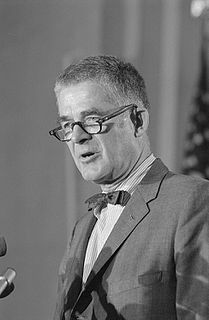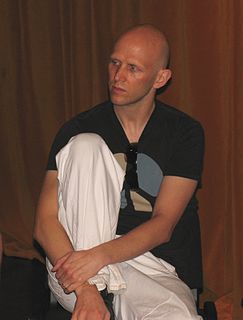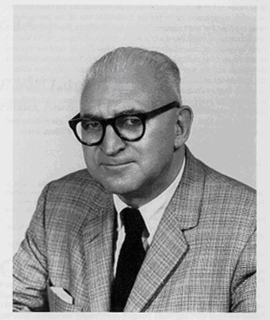A Quote by Albert Einstein
We must not conceal from ourselves that no improvement in the present depressing situation is possible without a severe struggle; for the handful of those who are really determined to do something is minute in comparison with the mass of the lukewarm and the misguided. And those who have an interest in keeping the machinery of war going are a very powerful body; they will stop at nothing to make public opinion subservient to their murderous ends.
Quote Topics
Body
Comparison
Conceal
Depressing
Determined
Ends
Going
Handful
Improvement
Interest
Keeping
Lukewarm
Machinery
Make
Mass
Minute
Misguided
Must
Nothing
Opinion
Ourselves
Possible
Powerful
Present
Public
Public Opinion
Really
Severe
Situation
Something
Stop
Struggle
Subservient
Those
Very
Very Powerful
War
Will
Without
Related Quotes
The world has progressed to the point where it's most powerful force is public opinion. And I believe that in this world it is not the great book or epic play, as once was the case, that will shape that opinion, but those who understand mass media and the techniques of mass persuasion...We must not just believe in what we sell. We must sell what we believe in. And we must pour a vast energy into those causes.
A free society depends upon a high degree of mutual trust. The public will not give that trust to officials who are not seen to be impartially dedicated to the general public interest, nor will they give trust to those high in government who violate the rule of law they ask citizens to obey at the expense of self-interest, or to those who present government as the place where one feathers his own nest, [or] exchanges favors with friends and former associates.
Every possible opinion is authored about everything. What's going to eventually happen is someone will look back on this period and have to sift through it. The overwhelming majority of those opinions are going to be ignored, because if every opinion is being offered, really no opinion is being offered.
For Sabina, living in truth, lying neither to ourselves nor to others, was possible only away from the public: the moment someone keeps an eye on what we do, we involuntarily make allowances for that eye, and nothing we do is truthful. Having a public, keeping a public in mind, means living in lies.
I have committed myself to joy. I have come to realize that those who make space for joy, those who prefer nothing to joy, those who desire the utter reality, will most assuredly have it. We must not be afraid to announce it to refugees, slum dwellers, saddened prisoners, angry prophets. Now and then we must even announce it to ourselves. In this prison of now, in this cynical and sophisticated age, someone must believe in joy.
So great are the psychological resistances to war in modern nations, that every war must appear to be a war of defence against a menacing, murderous aggressor. There must be no ambiguity about whom the public is to hate. Guilt and guilelessness must be assessed geographically and all the guilt must be on the other side of the frontier.
We have to make the first move ourselves rather than expecting it to come from the phenomenal world or from other people. If we are meditating at home and we happen to live in the middle of the High Street, we cannot stop the traffic just because we want peace and quiet. But we can stop ourselves, we can accept the noise. The noise also contains silence. We must put ourselves into it and expect nothing from outside, just as Buddha did. And we must accept whatever situation arises.
I've got to think about what I'm going to say very carefully. There's two avenues of thought: Do you stop everyone going, ban all the artists coming in from Russia? But then you're really leaving the men and women who are gay and suffering under the antigay laws in an isolated situation. As a gay man, I can't leave those people on their own without going over there and supporting them. I don't know what's going to happen, but I've got to go.
But Margaret went less abroad, among machinery and men; saw less of power in its public effect, and, as it happened, she was thrown with one or two of those who, in all measures affecting masses of people, must be acute sufferers for the good of many. The question always is, has everything been done to make the sufferings of these exceptions as small as possible?
It is possible to be honest every day. It is possible to live so that others can trust us-can trust our words, our motives, and our actions. Our examples are vital to those who sit at our feet as well as those who watch from a distance. Our own constant self-improvement will become as a polar star to those within our individual spheres of influence. They will remember longer what they saw in us than what they heard from us. Our attitude, our point of view, can make a tremendous difference.




































